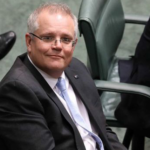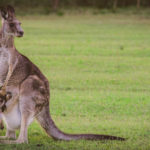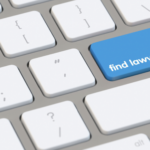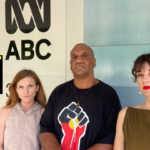Antisemitism-Specific Offence and Other Hate Crime Laws Are Coming to NSW

Ahead of 2025’s first sitting day of New South Wales parliament on 11 January, the state government announced its “tougher laws against antisemitism and hatred in NSW” package, which premier Minns has spruiked as a response to increasing acts of vandalism and firebombing targeted predominantly at Jewish people in the Greater Sydney region.
The package contains a range of laws targeting hate crimes in general, places bans on protesters, blocks access to places of worship and, in line with a demand from antisemitic envoy Jillian Segal, NSW Labor is planning to introduce an antisemitic-specific law into parliament next week.
“We have seen disgusting acts of racial hatred and antisemitism. These are strong new laws, and they need to be because these attacks have to stop,” NSW premier Chris Minns said in a 6 February 2025 statement.
“NSW is a multicultural state, and these acts designed to intimidate and divide will not work.”
But this signature tough-on-crime move by a NSW government is not so straightforward, as when Minns first spruiked tightening the law in December, AFP commissioner Reece Kershaw was yet to flag the possibility that these antisemitic acts and anti-Israel acts of vandalism are potentially being coordinated by foreign actors paying local criminals, who work for profit, not ideological beliefs.
The political climate of the last 12 months has seen this nation’s political leaders shielding criticism of Israel in respect of the Gaza genocide, which has led to the fear campaign propagated around “antisemitic crimes”, and this has been accompanied by a failure to acknowledge a rise in Islamophobic incidents, so these new preferential laws are likely to cause more social division.
The terror within or the terror overseas?
Minns told reporters on Thursday morning, that the forthcoming laws are designed to “keep the people of NSW safe, to combat antisemitism in our community and to ensure that those who are going to commit hateful acts of violence, graffiti and malicious damage in our community are met with the full force of the law”.
“The NSW government and the police have given a commitment that no stone will be left unturned to ensure that those who are committed to hateful acts of violence, vandalism or racism in our community will be met with a strong police presence,” the premier added.
This rhetoric coming from the NSW premier continues to suggest that there are people in our community harbouring antisemitic sentiment, or Jewish hate, that are going out by cover of night and committing graffiti and arson attacks, even though the AFP commissioner thought it pertinent to raise the scenario of foreign actors paying locals to propagate a false antisemitism scare.
However, there has been a huge spike in Islamophobic incidents across Australia, since the beginning of the Gaza genocide in October 2023, with the Islamophobia Register of Australia reporting in December 2024 that this surge constituted a 530 percent rise in incidents, with 989 incidents of abuse, physical intimidation or violence having been reported to the register.
“It’s clear that there are some bad actors, some bad people in this community, who are committed to doing harm,” the NSW premier further told reporters on 6 February.
Antisemitic and hate crimes
The first new law being spruiked by the NSW Labor government is an antisemitic specific offence, which will see new section 93ZA inserted into the Crimes Act 1900 (NSW) and involves the offending behaviour of displaying a Nazi symbol on or near a synagogue, which would see those found guilty liable to up to 2 years gaol time, and the law will make clear that graffiti is a ‘public act’.
A new offence of intentionally inciting racial hatred will also be contained in the bill, which too will see an offender facing 2 years inside.
Changes will be made to sentencing laws to expand the circumstances in which hatred and prejudice that inspires the commission of a crime can be considered an aggravating factor when sentencing in respect of the related offence, which means that a resulting sentence will be longer than would otherwise be if hatred and prejudice weren’t involved.
A new offence will be inserted into the Graffiti Control Act 2008 (NSW) that will involve the aggravated crime of graffitiing a place of worship.
And the last law reform in the package will involve yet another new offence, that of obstructing access to a place of worship without an excuse, as well as harassing, intimidating or threatening those trying to enter a place of worship, which appears to be yet another provision being added to the 2022 NSW antiprotest regime.
This last law would appear to serve to counter any future periodic demonstrations against the child sexual abuse crimes of the notorious Christian clergy.
Smoke and mirrors
“We haven’t identified any of the individuals of the 10 we’ve charged with any specific ideology that would cause them to commit the acts that they’ve committed,” NSW deputy commissioner David Hudson told reporters last week, “and that indicates to us that they are being orchestrated in some manner.”
“We have identified links between certain jobs, which gives us some indication there is a level of coordination above those perpetrating the offences,” he added, hinting again at the potential for the perpetrators of the attacks not being fuelled by antisemitic hate but rather paid by foreign actors.
On Saturday, however, a Jewish woman alerted police officers from Strike Force Pearl, the special NSW police antisemitism taskforce, to her having been harassed by a man using antisemitic slurs at a Bondi residence, and he was subsequently arrested in Newtown on Sunday afternoon and charged with stalk/intimidate.
This mirrors the same sort of Islamophobic attacks that Muslim women have been increasingly subjected to over recent months.
One incident that involved an Egyptian mother being set upon by a white Australian woman in Bankstown Kmart was notable due to the dramatically delayed response of NSW police to the attack after the Muslim woman contacted them seeking assistance.
The NSW government is suggesting that the new antisemitic and hate crime laws will assist with social cohesion. However, the specific attempt to protect one group of people from racial attacks in the community, whilst another suffering the same types of crimes is left to fend for themselves, is likely to create yet more social division.
Indeed, it’s appropriate to ask why Labor has not moved to create a law that makes it an aggravated offence to attack women in hijab, while the more long-term issue tugging away at the legitimacy the new laws that showcase one form of racism above all others, is why there are not special laws on the agenda to protect First Nations people from the prejudices of the system and the white community.







